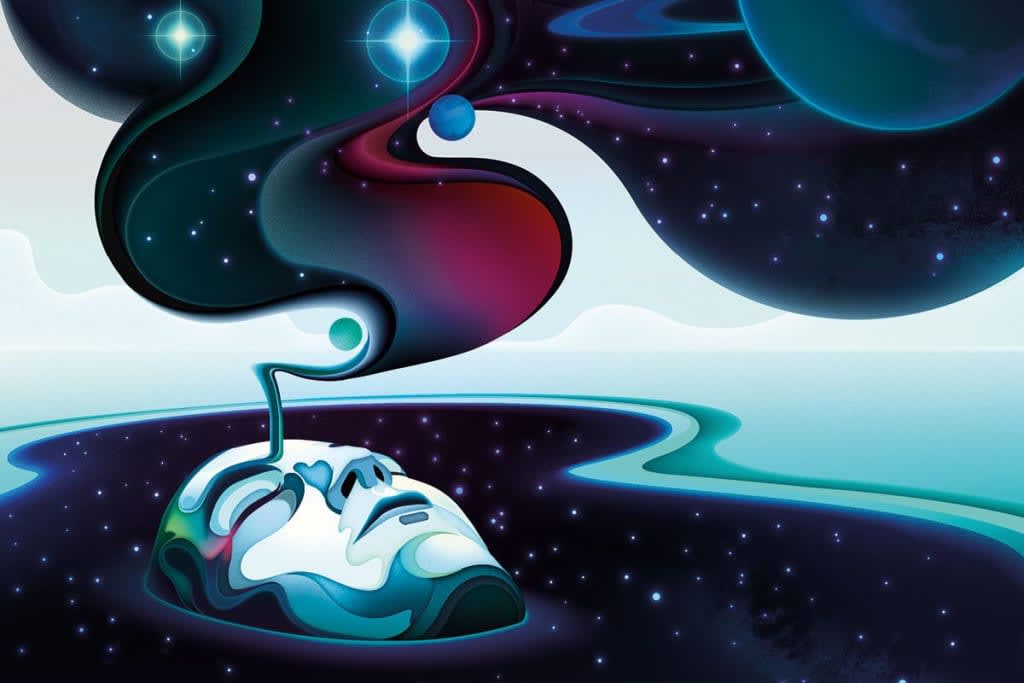
**Introduction:**
Throughout human history, the enigmatic question of what happens after we die has captivated our collective imagination. Do we ascend to a heavenly realm, reincarnate into another form, or simply fade into oblivion? While definitive answers to these age-old queries remain elusive, medical researchers such as Dr. Sam Parnia at NYU Langone Health have uncovered intriguing evidence that suggests consciousness may persist beyond the moment the heart stops beating. In this exploration, we dive into the realm of the afterlife and embark on a scientific quest to comprehend the profound mysteries of consciousness after death.
Clinical Death and Brain Activity:
Clinical death is the state in which a person's heart stops beating, traditionally regarded as the point of no return. Nevertheless, advancements in medical practices like cardiopulmonary resuscitation (CPR) and defibrillators have cast doubt on this long-held belief. It was once believed that after the heart ceases its rhythmic beating, brain cells would swiftly perish, leading to irreversible brain damage. Recent research, however, challenges this notion by suggesting that the brain may remain active for hours, or even days, after cardiac arrest. This revelation prompts us to question the nature of consciousness during this extended period.
**The Enigma of Consciousness:**
Consciousness, the very essence of our being, is undeniably intertwined with the brain's intricate web of neurons and synapses. Thoughts, emotions, and our sense of self are intricately linked to the brain's chemical and electrical signals. Yet the precise location of consciousness within this neural labyrinth remains a tantalising mystery. Is it concealed within the synapses, encoded in muscle tissue, or perhaps manifested as the electric energy flowing between nerve cells? Despite the tremendous strides made in neuroscience, the definitive location of consciousness within the nervous system continues to elude us.
**The Transition to the Afterlife:**
As we grapple with the question of where consciousness resides within the brain, we inevitably confront the central enigma: What becomes of our consciousness when the body succumbs to its final moments? Accumulating evidence suggests that consciousness may persist in or around the body after clinical death, challenging the conventional notion of death as an abrupt and irreversible event. This extended period of reversible death beckons us to contemplate the existence of an afterlife.
**Vivid Experiences and Memories:**
Intriguingly, individuals who have undergone clinical death often report vivid memories and experiences, even when brain activity appears to be absent. Some recount encounters with bright lights or recall conversations that occurred while their hearts remained silent—a phenomenon that defies our conventional understanding of consciousness and memory formation. These accounts tantalisingly hint that consciousness may endure in some form, even when the brain seems dormant.
**Guiding Figures and Out-of-Body Experiences:**
Many post-death experiences involve encounters with guiding figures or bewildering out-of-body observations. Some individuals claim to have detached from their lifeless bodies, watching medical procedures unfold from a vantage point above. These testimonies force us to grapple with profound questions about the nature of consciousness and its potential detachment from the physical vessel that houses it.
**Scientific Hypotheses:**
Dr. Sam Parnia, a pioneering figure in this field, proposes a hypothesis that challenges conventional wisdom. He suggests that consciousness might not be strictly confined within the brain; rather, it could exist as a separate, undiscovered entity akin to electromagnetic radiation. This audacious theory implies that consciousness might not be limited to a corporeal form, transcending the boundaries of our physical bodies.
**Diverse Afterlife Experiences:**
Post-death experiences are not confined to specific age groups or geographical regions. People from diverse cultures and age brackets report strikingly similar phenomena, suggesting a universal aspect to these experiences. Remarkably, young children often recount afterlife encounters untainted by religious or cultural beliefs, offering a unique perspective on this enigma.
**Transformative Effects:**
Individuals who have faced clinical death frequently undergo profound transformations in their lives. They emerge from the brink with heightened empathy and compassion, redirecting their focus away from self-centred pursuits and towards helping others. This shift in perspective raises compelling questions about the interconnectedness of consciousness and its potential to foster a deeper understanding of our shared humanity.
**Conclusion:**
While the question of what lies beyond the threshold of death remains a tantalising enigma, scientific evidence compels us to consider that consciousness may endure beyond clinical death. The firsthand accounts of individuals who have returned from the precipice of mortality challenge our conventional understanding of the relationship between consciousness and the body. Whether these extraordinary phenomena provide glimpses into an afterlife or offer insights into the intrinsic nature of consciousness itself, they continue to captivate the curiosity of scientists, philosophers, and seekers of truth worldwide. In this quest for understanding, we may inch ever closer to unravelling the profound mysteries of consciousness after death, illuminating the path to further exploration and discovery.
About the Creator
Zakaria
📝 Discover a World of Ideas and Insights 🌟 Welcome to a treasure trove of thought-provoking articles carefully crafted to inform, inspire, and entertain. Our articles are more than just words; they are windows into new perspectives.






Comments
There are no comments for this story
Be the first to respond and start the conversation.